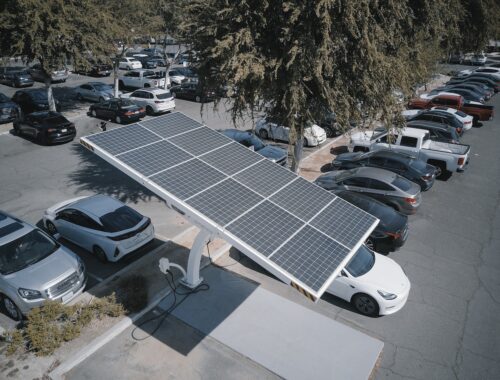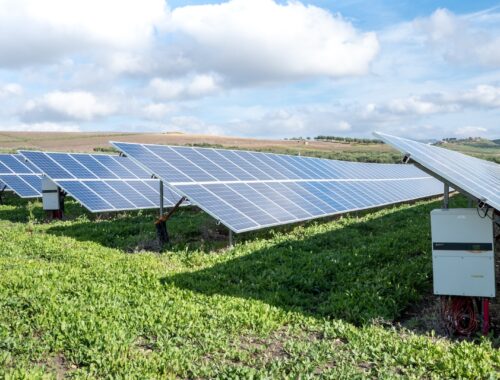
What are main uses of solar energy?
Solar energy is a clean, renewable, and sustainable source of energy that has become increasingly important in recent years as the world faces an energy crisis and the need for clean, renewable energy sources becomes more pressing. Solar energy is generated through the use of photovoltaic (PV) panels, which convert sunlight into electricity. There are many different uses of solar energy, from powering homes and businesses to providing energy for entire communities and even countries.
One of the main uses of solar energy is to generate electricity for homes and businesses. Solar panels can be installed on homes and businesses to generate clean, sustainable, and cost-effective electricity, reducing dependence on traditional energy sources and reducing greenhouse gas emissions. In addition, the use of solar energy can help reduce energy bills, as the cost of electricity generated by solar panels is becoming increasingly competitive with that of traditional energy sources.
Another use of solar energy is to power remote communities, where access to traditional energy sources may be limited. Solar panels can be installed in remote communities to provide clean and sustainable energy, improving access to electricity and reducing dependence on non-renewable energy sources. In addition, the use of solar energy can help reduce greenhouse gas emissions and improve air quality in remote communities.
Solar energy is also used in the transportation industry, through the use of solar-powered vehicles and other types of solar-powered transportation. This type of solar energy has the potential to reduce dependence on non-renewable energy sources, as well as reducing greenhouse gas emissions and improving air quality.
Another use of solar energy is in agriculture, through the use of solar-powered irrigation systems and other types of solar-powered agricultural equipment. This type of solar energy can help to reduce the cost of farming and increase crop yields, while also reducing the dependence on non-renewable energy sources.
Solar energy is also used in disaster relief and emergency response efforts. Portable solar panels and batteries can be used to provide power and light in the aftermath of natural disasters, reducing the dependence on traditional energy sources and improving response times.
In addition to these uses, solar energy is also being used in the oil and gas industry, where it can be used to provide power to oil and gas rigs, reducing the need for diesel-powered generators and reducing greenhouse gas emissions. Solar energy can also be used to power the pumping and compression systems used in the production of oil and natural gas, further reducing the dependence on non-renewable energy sources.
Another important use of solar energy is in large-scale electricity generation. Solar farms, which are large-scale installations of photovoltaic panels, can generate significant amounts of electricity for entire communities, regions, or even countries. This type of solar energy is particularly well-suited to sunny areas with high levels of sunlight, such as desert regions, and can provide a reliable source of clean, renewable energy for many years to come.
Solar energy can also be used in the maritime industry, through the use of solar-powered boats, ships, and other types of watercraft. This type of solar energy can reduce dependence on non-renewable energy sources and reduce greenhouse gas emissions, while also improving efficiency and reducing operating costs.
Another use of solar energy is in space, where it is used to power satellites and other spacecraft. Solar panels on satellites and spacecraft can generate electricity, providing a clean and sustainable source of energy for these vehicles as they travel through space.
Solar energy is also being used in the production of chemicals, through the use of solar-powered processes that use sunlight to generate chemicals such as hydrogen. This type of solar energy has the potential to reduce dependence on non-renewable energy sources, as well as reducing greenhouse gas emissions and improving air quality.
Solar energy is being used in the mining industry, where it can be used to power mining operations and reduce dependence on non-renewable energy sources. Solar panels can be installed at mine sites, providing a clean and sustainable source of energy for mining operations, reducing greenhouse gas emissions, and improving air quality.
Another use of solar energy is in the healthcare industry, where it can be used to power medical equipment, lighting, and other essential services in remote or underdeveloped areas where access to traditional energy sources may be limited. This type of solar energy can help to improve access to healthcare and reduce the dependence on non-renewable energy sources.
Solar energy is also being used in the tourism industry, where it can be used to power tourist facilities, such as hotels, resorts, and camping sites, reducing dependence on non-renewable energy sources and improving the sustainability of these facilities.
Another use of solar energy is in the military, where it can be used to power military bases, equipment, and vehicles, reducing dependence on non-renewable energy sources and improving energy security.
Solar energy is also being used in the aviation industry, where it can be used to power airports and aircraft. This type of solar energy can reduce dependence on non-renewable energy sources, improve energy efficiency, and reduce greenhouse gas emissions.
Finally, it is worth mentioning that the use of solar energy is growing rapidly around the world. Governments and businesses are investing in solar energy as a way to reduce dependence on non-renewable energy sources, reduce greenhouse gas emissions, and improve access to electricity. As technology continues to improve and the cost of solar energy continues to decrease, it is likely that we will see even more widespread adoption of solar energy in the years to come.
In conclusion, the uses of solar energy are many and varied, from powering homes and businesses to providing energy for remote communities and entire countries. Whether you are looking for a source of electricity for your home, business, or community, or you are interested in reducing your dependence on non-renewable energy sources, solar energy has a lot to offer. As technology continues to improve and the cost of solar energy continues to decrease, it is likely that we will see even more widespread adoption of solar energy in the years to come.
You May Also Like

The Renewable Essence of Solar Energy: Powering a Sustainable Future
May 10, 2023
Solar Power in Space Exploration: Applications and Challenges
August 25, 2023

